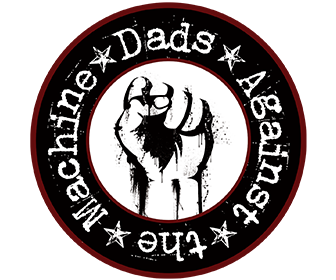While society often assumes that mothers are naturally better suited to raising children, emerging data suggests that children in single-father households may, in many cases, have better outcomes. This article explores ten reasons why children might fare better when raised by their fathers.
1. Lower Rates of Behavioral Issues
Studies show that children raised by single fathers are less likely to engage in delinquent behavior. Statistics reveal that children from single-mother households are 14 times more likely to commit rape and 20 times more likely to end up in prison. This suggests that the presence of a father can play a crucial role in instilling discipline and reducing the likelihood of criminal activity.
2. Reduced Risk of Mental Health Problems
Children in single-father households are less likely to experience mental health issues compared to those raised by single mothers. Given that women are twice as likely as men to suffer from depression and anxiety, children in single-mother households are more often exposed to the stress and instability that come with these conditions. Fathers, who statistically experience fewer mental health issues, may provide a more stable environment.
3. Better Academic Outcomes
Children in single-father households are more likely to succeed academically. Research shows that children from single-mother households are nine times more likely to drop out of high school. In contrast, the stronger emphasis on discipline and structure typically associated with father-led households may contribute to better academic performance.
4. Lower Rates of Substance Abuse
Children raised by single fathers have a lower likelihood of abusing drugs or alcohol. The data indicates that children from single-mother households are 10 times more likely to abuse chemical substances. Fathers may be better positioned to enforce boundaries and provide the guidance needed to steer children away from these dangerous behaviors.
5. Reduced Teen Pregnancy Rates
Single-father households are associated with lower rates of teen pregnancies. While single-mother households account for 70% of all teen pregnancies, the presence of a father figure may provide the necessary guidance and support to prevent early sexual activity and its consequences.
6. Greater Emotional Stability
Fathers are often better equipped to provide emotional stability for their children. The absence of a father has been linked to higher rates of suicide, with children from single-mother households being five times more likely to take their own lives. The emotional support and security provided by a father can be critical in preventing such tragedies.
7. Stronger Social Connections
Children in single-father households may have access to a wider network of positive influences. Fathers often maintain strong connections with extended family and friends, offering children a broader support system. In contrast, single mothers may struggle to provide the same level of social stability and positive role models, especially male figures.
8. Reduced Risk of Violence and Crime
The absence of a father is a significant predictor of violent behavior. The data shows that the proportion of single-parent households in a community is a strong predictor of its rate of violent crime and burglary. Single-father households, on the other hand, are less likely to produce children who engage in criminal activities.
9. Better Preparation for Adulthood
Fathers are often seen as better preparing their children for the challenges of adulthood. In a world filled with competition and conflict, the guidance provided by a father can be crucial in teaching children how to navigate these challenges successfully. This preparation can lead to better long-term outcomes in both personal and professional life.
10. Single Dads Work Harder and are more financially stable!
When it comes to giving their kids a stable, secure life, single dads are getting the job done. A staggering 74.3% of single fathers hold full-time jobs, compared to only 51.4% of single mothers. That consistent employment means more financial stability, which directly impacts living conditions for their children. Only 13.8% of single-father households live below the poverty line, while nearly 30% of single-mother households struggle to make ends meet.
It’s not just about jobs, though. Wealth paints an even clearer picture. Recent stats from the Federal Reserve Bank of St. Louis show that single mothers have an average net worth of $7,000, while single men hold an average of $59,000—that’s over eight times the wealth. This financial gap matters because financial stability translates into better educational opportunities, healthcare, and overall quality of life for the kids involved.
When you look at homeownership, it’s the same story. Single dads have a 49% homeownership rate, compared to just 34% of single moms. More homeownership means more stability for children—fewer moves, better neighborhoods, and more consistent schooling.
The bottom line? Kids in single-dad households are set up for better outcomes. Financial stability, homeownership, and fewer households living below the poverty line all contribute to a more secure and promising future for these children.
A Fairer Legal System Would Improve Outcomes
One of the key reasons children fare better in single-father households is that fathers who gain custody often do so because they are demonstrably the better option. The legal system typically favors mothers in custody battles, meaning that when a father does receive custody, it is usually because the mother is unfit or the father is exceptionally capable. This means children in single-father households are often in a more stable and supportive environment by default.
The data is clear: in many cases, children raised by single fathers are better off than those raised by single mothers. From lower rates of behavioral issues and substance abuse to better academic outcomes and emotional stability, the advantages of being raised in a single-father household are significant. It’s time for society to recognize the vital role fathers play in the upbringing of their children and to support policies that ensure the best possible outcomes for all children, regardless of family structure.



























